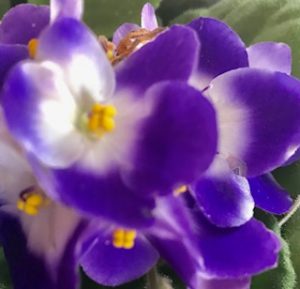 Have you ever experienced that “gut feeling” ….you know the one that’s trying to tell you something and you don’t know why? I remember having a feeling I couldn’t quite explain fifteen years ago. There was a job opportunity in Canada. As a way to entice moving there, I was provided time to visit and get to know my potential new home. It was a great experience and all things pointed to “yes,” but my gut wasn’t cooperating. I wondered if I was missing something. It was instinctual. I tried to talk myself out of the feeling but we couldn’t and wondered if I’d regret the decision. I didn’t. A week after turning the offer down, a family member was diagnosed with lung cancer, not bronchitis as a previous provider proclaimed. He passed away within the year.
Have you ever experienced that “gut feeling” ….you know the one that’s trying to tell you something and you don’t know why? I remember having a feeling I couldn’t quite explain fifteen years ago. There was a job opportunity in Canada. As a way to entice moving there, I was provided time to visit and get to know my potential new home. It was a great experience and all things pointed to “yes,” but my gut wasn’t cooperating. I wondered if I was missing something. It was instinctual. I tried to talk myself out of the feeling but we couldn’t and wondered if I’d regret the decision. I didn’t. A week after turning the offer down, a family member was diagnosed with lung cancer, not bronchitis as a previous provider proclaimed. He passed away within the year.
“Trusting our gut” is primal. In today’s world, we don’t have faith that the ancestral feeling is right because it isn’t concrete, our minds weren’t consulted and it could lead us down a path of uncertainty. Maybe we think it will let us down. Our minds are programmed for survival and we believe that by using our logical thinking, we’ll be safe. Gut instinct is making a decision but you don’t know why …a least not yet! Many of the creative minds of the past, present (and future) will use this sixth sense to nurture creativity, vision and wonderment, taking us to unknown places of enlightenment.
 From an embryological standpoint, the gut and the brain start as one and evolve. They grow away from each other but because of biology, they retain memory for one another. They are connected by a pathway of chemicals and hormones and are constantly checking in like walkie-talkies. Did I mention that scientists call our gut the “second brain"? This “other” brain (aka enteric nervous system) monitors the entire digestive tract. This intricate system functions independently without involvement from the central nervous system. This network of neurons is as detailed and complex as those of our spinal cord. Just as the brain can upset the gut, the gut can upset the brain.
From an embryological standpoint, the gut and the brain start as one and evolve. They grow away from each other but because of biology, they retain memory for one another. They are connected by a pathway of chemicals and hormones and are constantly checking in like walkie-talkies. Did I mention that scientists call our gut the “second brain"? This “other” brain (aka enteric nervous system) monitors the entire digestive tract. This intricate system functions independently without involvement from the central nervous system. This network of neurons is as detailed and complex as those of our spinal cord. Just as the brain can upset the gut, the gut can upset the brain.
This world wide web of neurons, hormones and neurotransmitters sends Morse code messages about the environmental conditions of the gut to the brain. Humans average over 4 pounds of microbes in our gut with at least 1,000 species of bacteria and over 3 million genes. What’s fascinating is that over 65% of the microbes in our intestine are unique to each person and influence our health and well-being.
Continued studies reveal that our brain is responsive to our gut microbes and, in fact, these bacteria influence our perception and change our behavior. This is critical information for those who have a personal or family history of depression or anxiety. Research shows that individuals who have a healthy and diverse gut microbiome are less likely to experience either of these conditions. Of course, what we eat is important, but don’t forget that the health and beauty products (including toothpaste), detergents and household cleaners we use and other environmental exposures (including antibacterial soaps) impact our gut microbiome.
 While the science behind the gut-brain union is still in infancy, there are some astounding results so far. A healthy gut can improve memory, lower cortisol, reduce the stress response and decrease inflammation in the body. Since chronic inflammation has been indicated as the root to many diseases, this is promising news. Even in 400 BC, Hippocrates knew the connection as he said, “All disease begins in the gut." How could he have known? Was he aware that 75% of our immune system is housed in the gastrointestinal tract or did he understand the impact of our food consumption and daily exposures as it relates to our health. Maybe he had a gut instinct...and he was right!
While the science behind the gut-brain union is still in infancy, there are some astounding results so far. A healthy gut can improve memory, lower cortisol, reduce the stress response and decrease inflammation in the body. Since chronic inflammation has been indicated as the root to many diseases, this is promising news. Even in 400 BC, Hippocrates knew the connection as he said, “All disease begins in the gut." How could he have known? Was he aware that 75% of our immune system is housed in the gastrointestinal tract or did he understand the impact of our food consumption and daily exposures as it relates to our health. Maybe he had a gut instinct...and he was right!

2 Comments
Thank you for this. A short but very informative article!
Hi Trisha. I'm glad you enjoyed it.